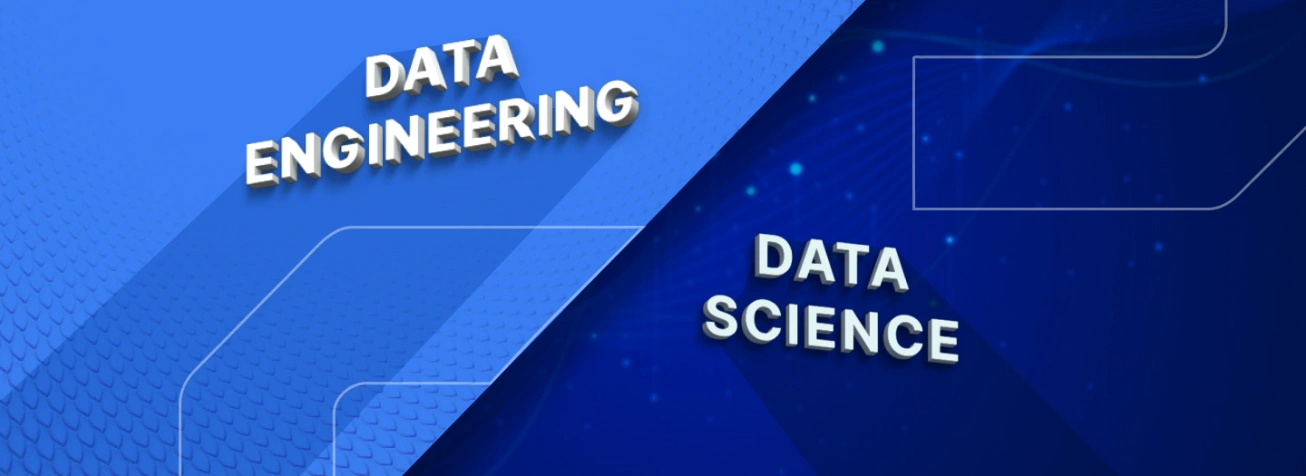The Power of Data Visualization Using Tableau
Data Engineering Vs. Data Science - Key differences
Business Intelligence(BI) and Data Analytics are no longer buzzwords. Instead, enterprises are rapidly gravitating towards them to improve business performance. With adequate focus on data literacy, its collection, and data infrastructure, it is possible to accomplish results capable of enhancing revenue generation.
Businesses generate a humongous amount of data today. This necessitates adopting intelligent and result-oriented data products to process the generated data and enhance its utility. The model "Data Science Hierarchy of Needs," suggested by Monica Rogati, further corroborates this. According to this model, Data Acquisition occupies the lowest level. It is succeeded by Data Engineering, Data Analytics, Business Analytics, Data Science, and AI (deployment and observability).
Data engineering helps to connect data gathering with Data Science. Raw data cannot form the basis for building predictive models that establish trends and patterns. It needs to be converted into a usable or accessible form. This transformation is achieved using well-designed systems and pipelines. The designing, developing, testing, and maintenance of these pipelines and architectures fall under the purview of Data Engineering.
Data Science deals with the extrapolation of knowledge and insights from transformed but noisy raw data, both structured and unstructured, and applying that knowledge to answer business-related queries for better decision-making and formulate metrics to improve implemented business processes.
Data scientists achieve the above by using different scientific methods, algorithms, processes, and systems. Data engineers complement Data Scientists by providing them with the necessary framework and architecture.
Data Engineering: Defining its scope and criticality

Analysis of Big Data has completely changed the way of doing business. The collection and management of such a large volume of data require the development of an architecture that can handle structured and unstructured primary data and appropriately cleanse and transform it. The development and management of this data architecture is done by Data Engineers. They use different intricate methodologies to achieve this. Tools associated with the implemented technique range from AI to Data Integration. By choosing and employing the correct tools and techniques, Data engineers gather, clean and authenticate data to make it comprehensive and coherent for analysis by Data Scientists.
Data Engineering is also important because it helps to refine SDLC(Software Development Life cycle), enhances data security, protect businesses from cyber attacks and cyber frauds and increase business domain knowledge. Its contribution to elongating the shelf-life of a business is indisputable. By converting unreadable data into readable form, Data Engineering empowers Data Scientists with secure data to generate accurate business insights.
Data Science: Its meaning and definition
Modern businesses are awash with data. With the expertise of professionals, it is possible to use available cutting-edge technology and tease actionable insights from the gigabytes of transformed data generated. These experts are Data Scientists.
They add value to a business by providing enterprises with accurate analytics and insights for precise decision-making, deciphering trends to realign goals, improve workflows by focussing on its best practices and identifying growth and revenue-earning opportunities. Data Science is also used to provide quantifiable data-driven evidence, refine target audience and influence insightful talent acquisition.
Data scientists are invaluable assets who analyze disparate data sources to generate meaningful insights that help businesses to grow, become profitable, and attain sustainability.
Data Engineering vs. Data Science

Often confused and thought to refer to the same thing, Data Engineering and Data Science are interwoven processes with distinct fundamental differences. Data engineering is the bridge that straddles the divide between data gathering and gaining value from data. It plays a critical role in the success of data science.
Differences between the two primarily relate to:
- Data handling: Big Data can benefit businesses by creating multiple possibilities for improvement. An organization employs people skilled in Big Data management to maximize this advantage. Data engineers and Data scientists play a crucial role in this management.
In the "Data Science Hierarchy of needs" pyramid, there is a clear distinction between the job roles essayed by Data engineers and Data scientists. Data engineers collect relevant data, transform it, and move it into pipelines so Data scientists can aggregate, optimize, test, and analyze it to generate real-time insights. - Data task classification: The work of a Data engineer is technically oriented as it involves three critical data actions, namely designing, building, and arranging Data "pipelines." They are Data Architects who design Big Data architecture and prepare it for analysis.
Alternatively, Data scientists analyze, test, create and present data so enterprises can improve business decision-making and make it data-driven. Data engineers do technical work, while Data scientists are more business-oriented. - Tools involved: Machine Learning(ML) and Deep Learning(DL) are to Data Science what ETL(Extract Transform Load) and ELT(Extract Load Transform) are to Data Engineering. ETL is the process of extracting, transforming, and loading the transformed data onto the original database.
ML, a subset of Artificial Intelligence or AI, enables computers to forecast future scenarios automatically by using specific algorithms and existing information. DL uses artificial neural networks built on ML algorithms to allow the automatic learning of computers. - Of algorithms and statistics: Data Engineering uses algorithms, but Data Science uses statistics. Algorithms comprise rules and processes that guide computers to carry out specific tasks. They deal with information retrieval, logical reasoning, and mathematical problems like calculus and linear algebra.
Statistics involve the study and interpretation of numerical data. Other than using statistics to group, review, and analyze information, Data scientists also use it to apply quantifiable mathematical models to specific variables.
Conclusion
To sum up, Data engineering plays a critical role in Data Science. But while they might occur together in almost all business applications, they are fundamentally different and require separate tools and skill sets for successful application.
Data Engineering deals with data management, understanding, and extraction from big datasets. At the same time, Data Science is concerned with analyzing the cleaned and extracted data and using analytics to generate intelligent business insights. Together, they help businesses transition from average to excellent.
Email us or Talk to us at +91-98367-81929 or Simply Contact Us through the website.
Let's Connect











